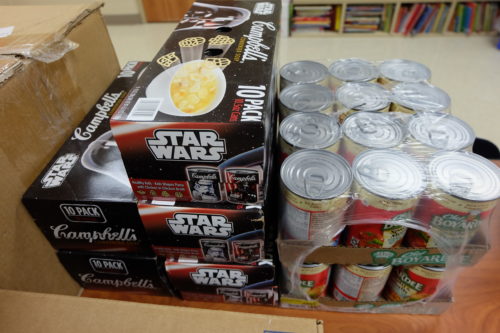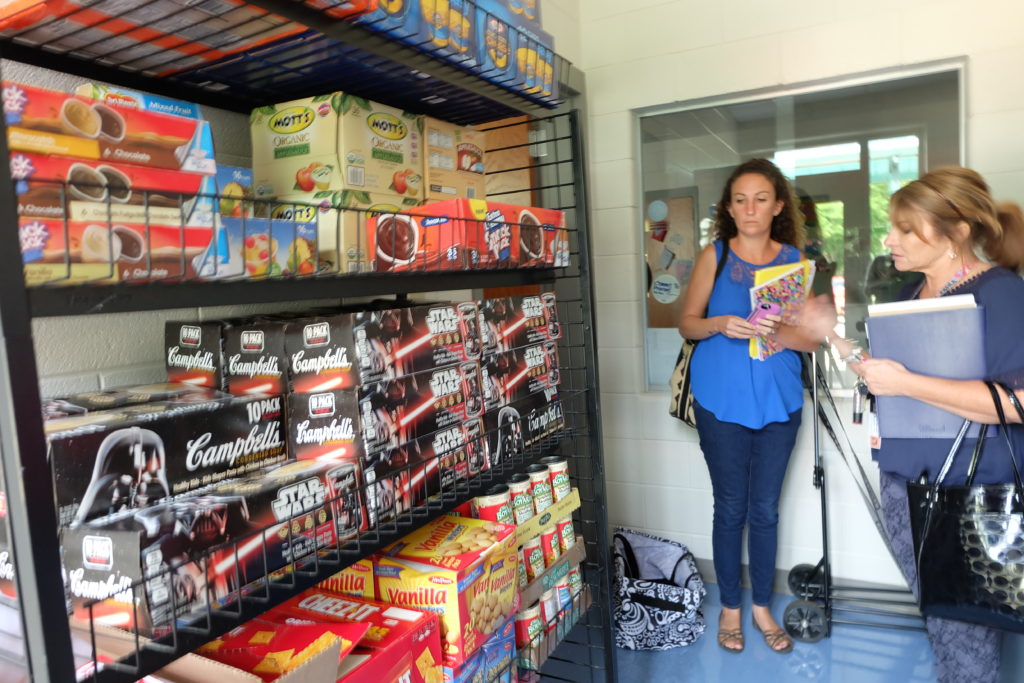I felt tears welling up in my eyes as I looked from the practically empty refrigerator before me to the precious little girl standing by my side.
I was on a project visit in Eastern Kentucky with one of our volunteer coordinators, and she had arranged for me to see first-hand the conditions in which many of the youngsters in her school are forced to live. On this particular day, we accompanied a beautiful little shaggy-haired seven-year-old girl, not yet enrolled in our program, home following the day’s classes.
“I don’t know what I’m going to feed the children tonight,” she said, explaining that her monthly check had not yet arrived, making it impossible for her to shop for groceries.
We were greeted warmly at the door of a rather ramshackle house by the child’s mother, a woman who appeared much older than she actually was. We were made to feel quite welcome, despite the worn and mismatched furniture that cluttered the small living room.
What to Feed the Children
As we spoke with the woman, she wore her heart on her sleeve. She cried as she told us how difficult times were, and especially how hard it is for her, as an unemployed single parent of three living on food stamps and a small monthly federal assistance check, to make sure her children have enough food to eat.
She stated over and over that her children would probably go hungry were it not for the free breakfasts and lunches they receive at school each weekday. “I thank God for those school meals,” she said. “The money just does not go far enough, and by the end of the month, sometimes the food has run out.” The woman then took us into her small kitchen and opened the refrigerator to show us how little food was there: a half-empty container of milk, a stick of margarine, a few leftover beans in a pot, and a couple of slices of cheese. “I don’t know what I’m going to feed the children tonight,” she said, explaining that her monthly check had not yet arrived, making it impossible for her to shop for groceries.
Backpacks Full of Food

Our feeding programs are essential for children living in poverty.
Then the woman said something that really made me think – something I had never considered prior to that visit. She said, “It is really hard in the summer, because the kids have to eat all their meals at home; there are no school meals then, but I still don’t get any more money.”
She went on to say how bare the cupboards get during the months of June through August, and that she knows there are times when her children get very hungry. She had tears in her eyes as she spoke, and my heart broke as I took in the significance of her words. It hit me, then and there, that there are children all over our country who, just like this family, must go hungry on a regular basis — especially in the summer when school feeding programs are unavailable to them.
Since that time, Children Incorporated has worked with a number of schools and childcare centers to support weekend and summer backpack feeding programs. The availability of these programs often determines whether or not a child will eat, sometimes for days at a time. These backpacks filled with non-perishable food items provide nourishment, as well as a highly important reminder to the children receiving them, that someone, somewhere remembers and cares about them.
***
HOW CAN I DONATE TO Children Incorporated’s feeding program?
You can donate to our feeding program in one of two ways. Call the office at 1-800-538-5381 and speak with one of our specialists on staff or visit our website at www.childrenincorporated.org/donate.

